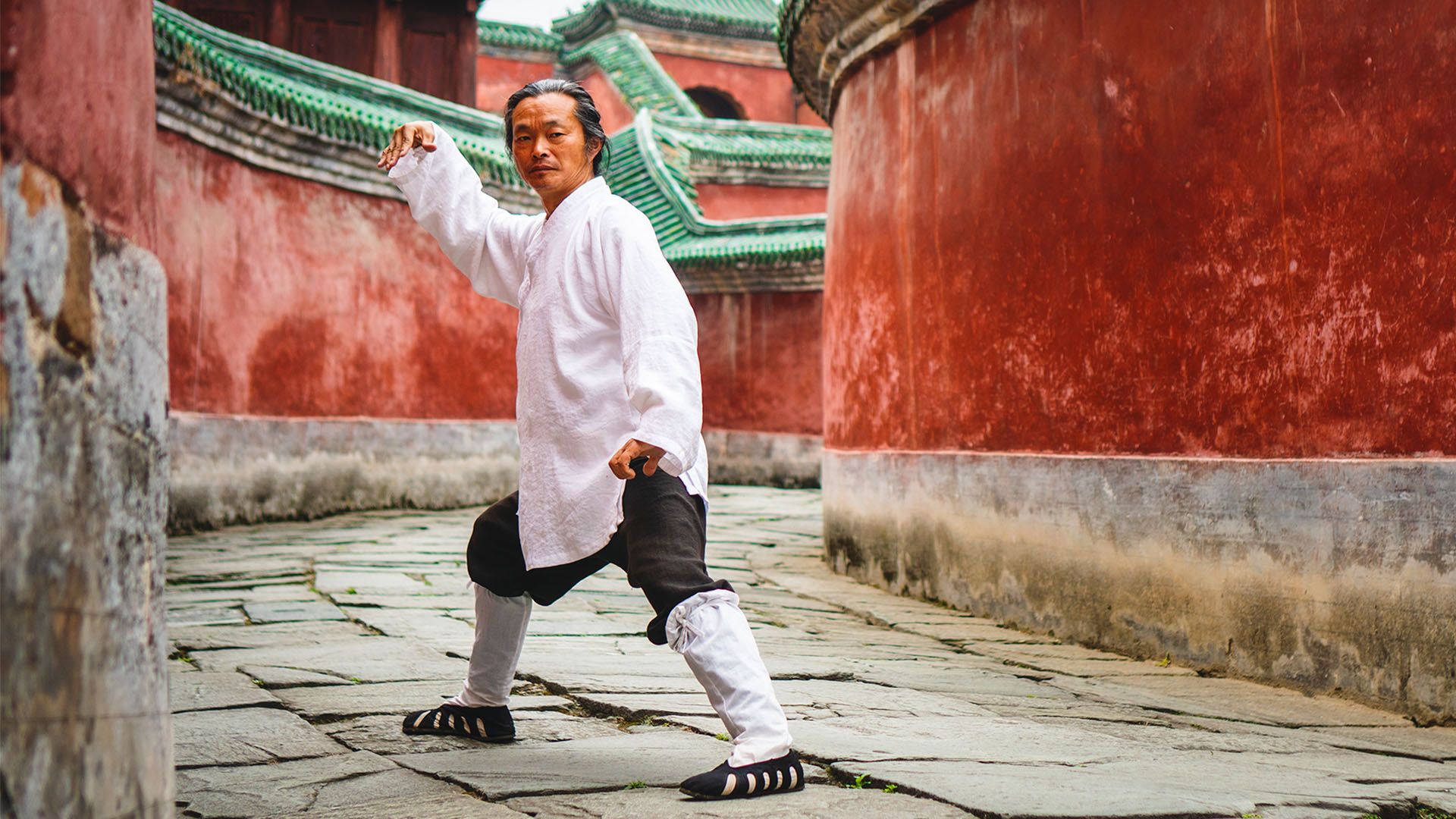Qigong vs Yoga: 10 Differences You Must Know!
Mar 20, 2024
Struggling to choose between Qigong and Yoga? You're not alone. Many grapple with selecting the most suitable practice for their wellness journey. Qigong vs Yoga, both enhance physical and mental health, yet they offer distinct benefits due to their different origins, philosophies, and techniques. This article dives into the core differences between these two ancient practices, providing a comprehensive guide to help you make an informed decision on which path to follow for your personal growth and health.
Overview of Qigong and Yoga
Qigong, originating from China, is a holistic system of coordinated body posture, movement, breathing, and meditation used for health, spirituality, and martial arts training. It is an integral part of Traditional Chinese Medicine. Qigong exercises consist of a series of flowing movements aimed at enhancing the flow of Qi (energy) in the body. Medical Qigong, one of the different types of Qigong, focuses on healing and maintaining health.
Yoga, which comes from India, is an ancient practice that combines physical postures, breathing exercises, and meditation to promote mental and physical well-being. Hatha Yoga, one of the many forms of Yoga, emphasizes physical poses and breathing techniques. Yoga practitioners often attend regular Yoga classes to learn and practice different Yoga poses and techniques under the guidance of a Yoga instructor.t
Importance of Understanding Their Differences
Understanding the differences between Qigong and Yoga is essential for choosing the right practice for individual needs. While both aim to harmonize the mind and body, Qigong focuses on the flow of Qi and is physically easier to practice, making it suitable for all ages. Yoga, on the other hand, tends to emphasize physical strength and flexibility, with a wide variety of styles ranging from gentle Yin Yoga to more physically demanding forms. Recognizing these distinctions helps individuals select the practice that aligns best with their personal health and wellness goals.
Qigong vs Yoga: 10 Major Differences
1. Origin: Qigong (Chinese) vs. Yoga (Indian)
Qigong comes from China and is an ancient practice rooted in Traditional Chinese Medicine. It has evolved over thousands of years, incorporating various forms of qigong, including medical qigong. On the other hand, yoga comes from India and is a spiritual practice with a history spanning thousands of years. Different types of yoga, such as Hatha yoga, have emerged, each with its own style.
2. Philosophy: Qi focus vs. Unity emphasis
Qigong focuses on the concept of Qi, or life energy, and aims to harmonize the body's energy flow. In contrast, yoga emphasizes unity between the mind, body, and spirit, with a focus on achieving a state of balance.
3. Goal: Health (Qigong) vs. Enlightenment (Yoga)
The primary goal of qigong is to promote health and well-being by balancing the body's energy. Yoga, however, tends to emphasize spiritual enlightenment and self-realization as its ultimate aim.
4. Practices: Energy work (Qigong) vs. Postures (Yoga)
Qigong practices involve energy work through breathing and meditation, while yoga tends to emphasize physical postures, known as yoga poses, along with breathing exercises.
5. Movement: Gentle (Qigong) vs. Static/Dynamic (Yoga)
Qigong movements are typically gentle and fluid, making it physically easier to practice for many. In contrast, yoga can include both static and dynamic movements, with a wide range of yoga postures.
6. Breathing: Deep breaths (Qigong) vs. Pranayama (Yoga)
Qigong emphasizes deep, coordinated breaths to enhance Qi flow. Yoga, on the other hand, employs various breathing techniques, known as pranayama, to control and direct energy.
7. Energy: Qi (Qigong) vs. Prana/Chakras (Yoga)
In qigong, the focus is on cultivating and balancing Qi, the vital energy. Yoga focuses on Prana, similar to Qi, and works with the chakra system to balance energy centers.
8. Benefits: Stress reduction (Qigong) vs. Health focus (Yoga)
Qigong is known for its stress-reducing effects and its role in maintaining health. Yoga, while also offering stress reduction, tends to have a broader health focus, including physical strength and flexibility.
9. Spirituality: Taoist (Qigong) vs. Hindu/Buddhist (Yoga)
Qigong is influenced by Taoist principles, emphasizing harmony with nature. Yoga has roots in Hindu and Buddhist traditions, focusing on spiritual growth and enlightenment.
10. Accessibility: Simple (Qigong) vs. Diverse styles (Yoga)
Qigong is often seen as more accessible and simple to start, especially for beginners. Yoga offers a diverse range of styles and levels, catering to various preferences and abilities.
Also Read: Tai chi vs Yoga: 5 Differences You Must Know!
Choosing Between Yoga and Qigong
Choosing between Qigong and Yoga depends on your preferences and goals. Yoga focuses on postures and breathing, offering various styles like Yin Yoga and regular yoga sessions. Qigong, on the other hand, emphasizes energy flow through gentle movements and meditation. Both practices aim to harmonize body and mind, but Qigong may be physically easier to practice. While yoga tends to emphasize physical strength and flexibility, Qigong is known for its calming effect and energy work. Ultimately, whether you choose Qigong or Yoga, both offer valuable benefits for your physical and spiritual well-being.
5 Benefits of Yoga
Yoga is a great practice that offers numerous benefits for both the body and the mind. Here are five key benefits:
- Improves Flexibility: Regular yoga sessions can significantly increase your flexibility, making it easier to perform everyday tasks and reducing the risk of injury.
- Enhances Mental Clarity: The practice of yoga involves breathing and meditation techniques that help clear the mind, improve concentration, and reduce stress.
- Strengthens Muscles: Yoga postures, also known as asanas, strengthen various muscle groups, contributing to a more toned and balanced physique.
- Promotes Better Posture: Yoga focuses on alignment and balance, encouraging better posture, which can alleviate back pain and other posture-related issues.
- Boosts Immunity: The breathing and movement in yoga can help improve the functioning of the immune system, keeping you healthier overall.
Whether you're a regular yoga practitioner or someone who also practices qigong or tai chi, incorporating yoga into your routine can offer these benefits and more, contributing to a holistic approach to wellness.
Here is the best online Tai Chi course by the best Master Gu, a distinguished figure in the world of Tai Chi.
5 Benefits of Qigong
Qigong, an ancient Chinese practice, focuses on harmonizing the body, mind, and spirit through breath and movement. Unlike yoga, which offers thousands of different styles and postures, qigong is physically easier to practice and accessible to all ages, making it a great choice for those seeking a gentle yet effective exercise.
Here are 5 benefits of Qigong:
- Enhances Mental Clarity and Emotional Stability: Regular qigong exercises, much like yoga, involve breathing and meditation, fostering a calm mind and reducing stress levels.
- Improves Physical Health: Qigong may seem simpler, but it effectively boosts immunity, enhances flexibility, and alleviates pain.
- Cultivates Qi for Increased Energy: Practicing qigong increases the vital energy within, leading to greater vitality and well-being.
- Promotes Healing: The gentle movements and focused breathing are beneficial in recovering from illness and preventing health issues.
- Supports Spiritual Growth: Although yoga is known for its spiritual practice, qigong also offers a path to inner peace and harmony.
Qigong's unique focus on Qi manipulation and its simplicity make it a complementary or standalone practice for enhancing life quality.
Conclusion
Qigong and Yoga, both ancient practices, offer unique approaches to enhancing health and mindfulness. While Qigong focuses on the flow of Qi and gentle movements, Yoga emphasizes posture and a variety of styles. Understanding the differences between these practices can help you make an informed choice for your personal well-being. Whether you practice Qigong, Yoga, or a combination of both, the journey towards inner harmony and physical health is rewarding. Which practice do you feel more drawn to, and why?
FAQs
1. How often should I practice Qi gong?
Regular practice, even just a few minutes daily, can yield significant benefits.
2. Do I need special equipment for Qigong?
No, Qigong requires no special equipment and can be practiced anywhere.
3. Can Qigong help with stress management?
Yes, Qigong is highly effective in reducing stress and promoting relaxation.
4. Is Qi gong a form of martial art?
Qigong has martial arts applications, but it is primarily a health and wellness practice.
5. Can Qigong improve flexibility?
While not as focused on flexibility as Yoga, Qigong can enhance overall body movement and suppleness.







